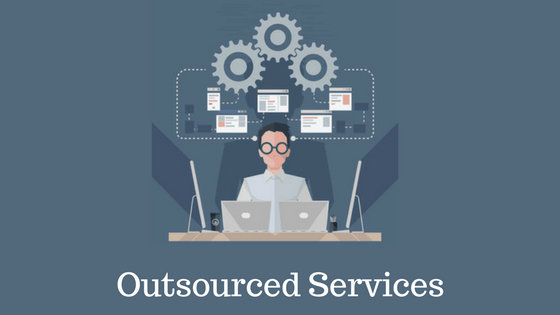Launching a startup isn’t easy work. In the beginning, you can feel like you’re wearing too many hats as you try to get things going. There’s funding, marketing, and logistics to worry about. Plus, you’ve got to find people with the right skills and control all the costs associated with running a business.
However, you don’t have to stretch yourself too thin. Outsourcing the processes and tasks that take you away from strategizing can save time and money. These may also be areas where someone else has the deep expertise your startup needs to be successful. Think core business functions related to payroll, HR, marketing, and customer service. Let’s examine why outsourcing some of these processes is the optimal choice for startup founders.
1. Payroll
Congratulations! You’ve hired a small group of employees and freelancers to help make your business idea a reality while also moving the economy forward. But, to encourage those new team members to stick around, and stay productive, you’ve got to pay them on time and without issues. That means keeping track of salaries, benefit deductions, payroll taxes, and contractors’ projects and invoices, and doing it in a way that is as efficient as possible.
Running payroll on a recurring schedule can become time-consuming when you manage it on your own. You might spend hours or even days each week organizing paperwork, making calculations, and confirming checks get mailed. There’s always the risk of a miscalculation as tax structures and workers’ details change. Using a small business payroll provider takes the burden off your shoulders so you can focus on scaling your startup.
Payroll providers’ software helps automate most of the processes managers and employees need to complete. And there’s a laundry list to manage: collecting W-2 and 1099 details, making direct deposits, calculating federal and state income taxes, and tracking vacation pay. Many payroll apps also have self-service options for employees so day or night they can access their personal information, manage time-off requests, view pay stubs, or access annual tax documents, which saves time and reduces paperwork.
2. HR and Recruiting
Workers who join startups aren’t known for their long tenures. Research shows that the average startup employee lasts for two years. Around 25% of startup workers leave in any given year. For founders and leaders, higher turnover rates mean more frequent and ongoing recruiting efforts.
Furthermore, the roles and responsibilities of staff in new businesses can be in constant flux. You might start out with an assistant who handles a little bit of everything. Within a few months, that role becomes more focused on overseeing business development. Likewise, you could farm out the bulk of your creative and IT work at the start. However, six months in, you decide to revise that strategy and hire full-time employees instead.
Enlisting the help of recruiting agencies and online tools brings order to frequently changing and chaotic hiring processes. Recruiting specialists can help you craft and post job listings, track and screen candidates, and find the right talent faster. You can also work with agencies that specialize in your industry or types of roles, such as managerial or executive positions.
3. Marketing
Unless you have consumer research, graphic design, copywriting, and website analytics skills, you’re probably going to need some help with marketing. While you could assemble an in-house team, this may not be as cost-effective during launch. Plus, you might not have time to find, onboard, and acclimate a full marketing department.
Strategic decisions related to brand identities, unique selling propositions, and media buys can greatly influence whether your company stands out. Creating and placing a few ads might get your name out there. However, that approach won’t differentiate your brand from the competition or give your target audience a compelling reason to buy. You could wind up spending a lot on marketing without getting much bang for your buck.
Marketing agencies, including those focused on digital marketing and SEO, work with you to develop and execute a defined strategy. Perhaps you want to focus on building a brand story while generating interest in your products or services. Agencies already have the skills to create effective campaigns that will achieve meaningful ROI. They’ve got a track record of doing this for other clients and have many success stories to share.
4. Customer Service
Acquiring customers is kind of like buying a house. You offer an initial investment to make the property yours. Then you’ve got to keep spending money to maintain and repair it. Similarly, the first sale you make to a client usually isn’t the only interaction you have with them.
Once someone buys your product or service, they may have questions or run into problems. They might also want to upgrade or add on additional offerings. With many services, customers will need to manage their accounts, make minor adjustments, and research their options. Service reps, mobile apps, and online support sites are things every business has to have to maintain its clients. Otherwise, customers will go elsewhere to get their ongoing needs met.
That said, startups might not have the internal resources to provide after-sale support and address service requests. Outsourcing your customer service department allows you to quickly integrate those resources. You’ll establish service guidelines, help develop scripts, and set quality standards. The vendor you contract with will provide you the staff and tools (like chatbots) to keep your client base happy.
Final Thoughts
As a startup founder, you’ve got enough on your plate without having to worry about every last process and detail. Getting caught up in routine tasks will take you away from focusing on growing your business and maximizing ROI. Outsourcing core processes like payroll and customer service can help you launch your startup more efficiently. And as a bonus, you won’t run yourself ragged.





